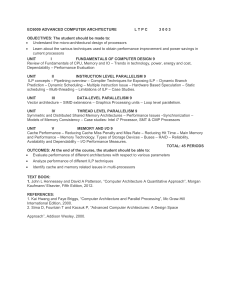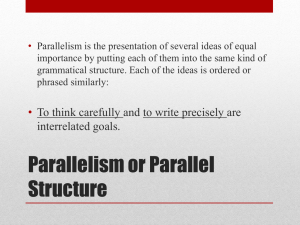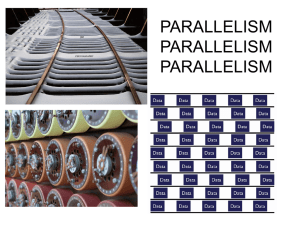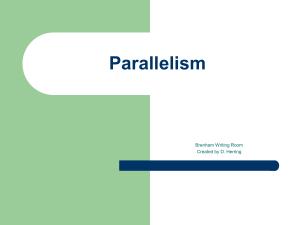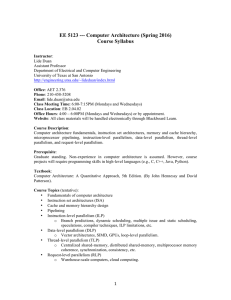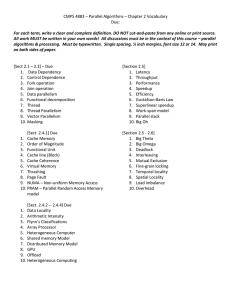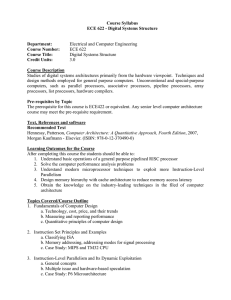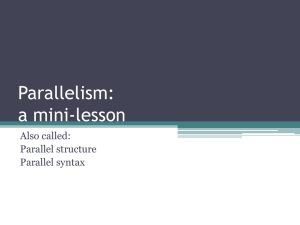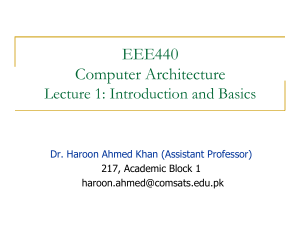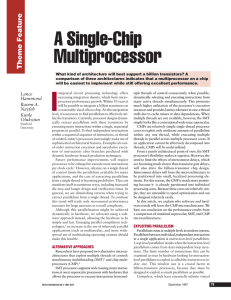CS259: Advanced Parallel Processing
advertisement
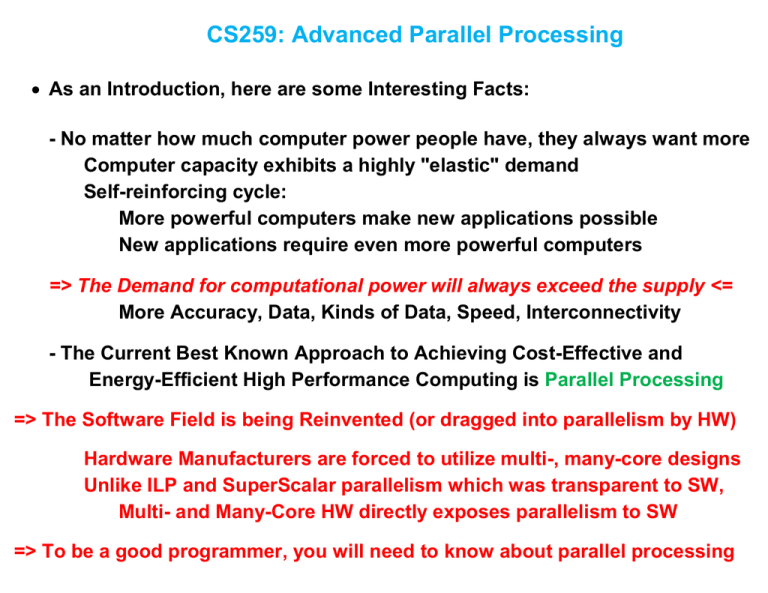
CS259: Advanced Parallel Processing As an Introduction, here are some Interesting Facts: - No matter how much computer power people have, they always want more Computer capacity exhibits a highly "elastic" demand Self-reinforcing cycle: More powerful computers make new applications possible New applications require even more powerful computers => The Demand for computational power will always exceed the supply <= More Accuracy, Data, Kinds of Data, Speed, Interconnectivity - The Current Best Known Approach to Achieving Cost-Effective and Energy-Efficient High Performance Computing is Parallel Processing => The Software Field is being Reinvented (or dragged into parallelism by HW) Hardware Manufacturers are forced to utilize multi-, many-core designs Unlike ILP and SuperScalar parallelism which was transparent to SW, Multi- and Many-Core HW directly exposes parallelism to SW => To be a good programmer, you will need to know about parallel processing Note the Course Title: Parallel Processing; not Parallel Programming Parallelism can occur in Hardware and Software HW Computations and SW Computations are Interchangeable The two are synergistically interrelated and dependent upon each other Analogy to a High-Performance Race Car Driver Car is Hardware; Driver is Software The System is Car and Driver To write optimal (parallel) SW, CS experts need to understand (parallel) HW Therefore, this class is a combination of HW and SW Focus of the Class is on Parallelism in General We will study Concepts, Algorithms and Potential Problems of Parallelism Focus is *not* on any one particular programming language or paradigm The Parallel Processing Field is currently in a state of Rapid Evolution. Parallel Processing Languages and Paradigms are in flux, but Fundamental Concepts, Algorithms (and Problems) will Endure General Programming Background should be sufficient for this class We will write many short programs as opposed to a few long programs Informal Class Survey How Many Students in Class Have: - Taken CS159 Parallel Processing - Taken CS247 Computer Architecture (Pipelining & ILP) - Programming Backgrounds in: Fortran C Java - Prior Knowledge or Experience with: Multi-Threading, Concurrency, Parallelism Deadlocks Race Conditions Mutual Exclusion, Semaphores Memory Interleaving Cache Memory, Cache Coherency Virtualization - Access to a Multi-Core PC, Cluster, Grid, Cloud or Supercomputer - A Particular Topic or Goal in Mind for this Course ?
